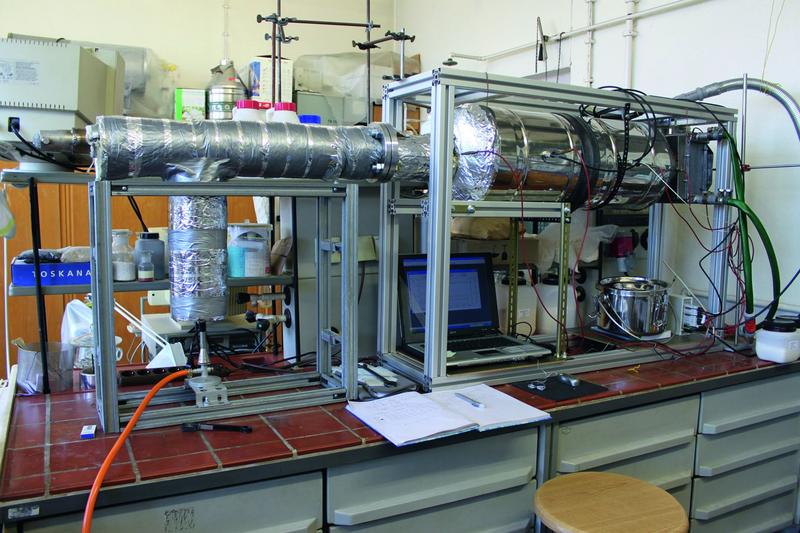
New Zeolite Material Enhances Heat Storage Efficiency

The laboratory storage system can be filled with 1.5 kg of zeolite for desorption and adsorption measurements.
© TH Wildau
Material is manufactured without binders and can be formed into any shape
Like a sponge, microporous zeolites store water vapour within their large internal surface areas. This releases heat. Conversely, water is released again when heat is added. Energy losses only ever occur during charging and discharging, but in between, this thermochemical storage system manages to operate without any losses.
The 100% pure zeolite used achieves a greater energy density and features an improved pore structure. In order to achieve the desired bonding strength, zeolite was previously combined with 10 to 15% clay, which has no special storage properties.
In addition, the new type of zeolite can now be formed into all kinds of complex geometric structures. In future this will make it easier to manufacture thermal storage systems precisely tailored to different application areas.
The new zeolite heat storage is currently being further developed for use in a CHP plant combined with an algae cultivation system. Here the zeolite is used to dehydrate the flue gases and to supply the biological process with heat. The ERK Eckrohrkessel company from Berlin, Wildau Technical University of Applied Sciences and the ZeoSolar e.V. association are working together in the project.
The BINE-Projektinfo brochure “Thermal storage systems brought into shape” (07/2015) follow this link:
http://www.bine.info/en/press/press-releases/press/pressemitteilung/neues-zeolit…
Uwe Milles/Birgit Schneider
presse(at)bine.info
About BINE Information Service
Energy research for practical applications
The BINE Information Service reports on energy research topics, such as new materials, systems and components, as well as innovative concepts and methods. The knowledge gained is incorporated into the implementation of new technologies in practice, because first-rate information provides a basis for pioneering decisions, whether in the planning of energy-optimised buildings, increasing the efficiency of industrial processes, or integrating renewable energy sources into existing systems.
About FIZ Karlsruhe
FIZ Karlsruhe – Leibniz Institute for Information Infrastructure is a not-for-profit organization with the public mission to make sci-tech information from all over the world publicly available and to provide related services in order to support the national and international transfer of knowledge and the promotion of innovation.
Our business areas:
• STN International – the world’s leading online service for research and patent information in science and technology
• KnowEsis – innovative eScience solutions to support the process of research in all its stages, and throughout all scientific disciplines
• Databases and Information Services – Databases and science portals in mathematics, computer science, crystallography, chemistry, and energy technology
FIZ Karlsruhe is a member of the Leibniz Association (WGL) which consists of 87 German research and infrastructure institutions.
http://www.bine.info/en – BINE Informationsdienst












